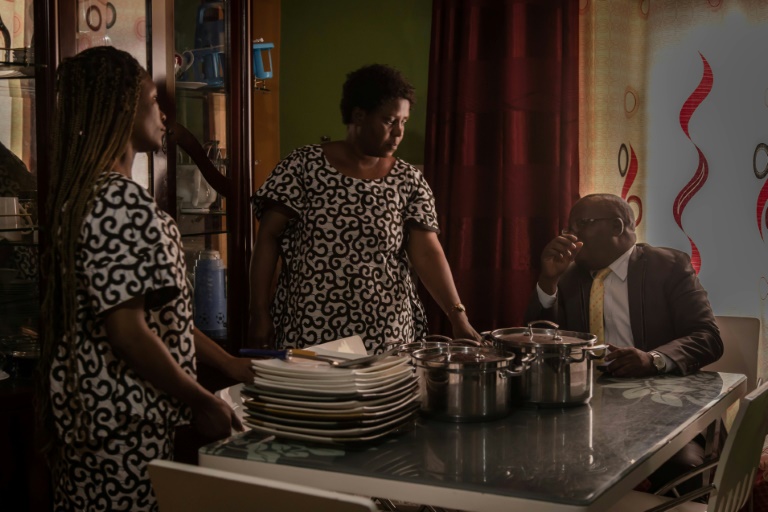Rise in sexual violence cases in DR Congo

In 2012, Chirhuza Zagabe married three women simultaneously in his church in eastern Democratic Republic of Congo – Copyright AFP/File RONALDO SCHEMIDT
In a new report, Doctors Without Borders/Médecins Sans Frontières (MSF) shows that medics treated an unprecedented number of victims and survivors of sexual violence in the Democratic Republic of Congo (DRC) in 2023.
It is of ongoing concern that this upward trend has continued into 2024. The vast majority of victims were treated in displacement camps in Goma, where tens of thousands of people have fled in recent years due to escalated fighting between various warring groups.
MSF calling on all national and international stakeholders to take urgent action to prevent sexual violence and improve care for survivors.
The report outlines that in 2023, MSF teams in DRC helped treat 25,166 victims and survivors of sexual violence across the country, averaging more than two patients every hour. This figure is by far the highest number ever recorded by MSF in DRC.
This trend accelerated in the first months of 2024: In North Kivu province alone, 17,363 victims and survivors were treated with MSF assistance between January and May. Not even halfway through the year, this already represented 69 percent of the total number of victims treated in 2023 in the five provinces studied.
In North Kivu clashes between the M23 group and the Congolese army with their respective allies have been raging since late 2021. The escalation has forced 2 million people to flee their homes in the northeast region encompassing North Kivu, South Kivu, and Ituri provinces.
Women and girls account for 98 percent of the victims treated by MSF in DRC in 2023. Many were assaulted by armed men in and around displacement camps.
The governmental response has been weak and inhumane living conditions have fuelled the phenomenon. The lack of food, water, and income-generating activities exacerbates the vulnerability of women and girls (1 in 10 victims treated by MSF in 2023 were minors), who are forced to go to neighbouring hills and fields where there are many armed men.
The lack of sanitation and safe shelter for women and girls leaves them vulnerable to attack. Others are sexually exploited to support their families. The few programs that do exist are always too short-lived and grossly under-resourced.
MSF sees sexual violence as a major medical and humanitarian emergency in DRC. According to the latest Gender-Based Violence Area of Responsibility DRC information, which compiles data from various humanitarian organizations offering gender-based violence care services in 12 provinces, 55,500 survivors of sexual violence received medical care in the second quarter of 2024.
To address the issue, MSF:
- Calls on all parties to the conflict to ensure respect for international humanitarian law. In particular, MSF calls for the absolute prohibition of acts of sexual violence, as well as respect for the civilian nature of displacement sites. The protection of civilians caught up in the fighting must be a priority. Those involved in humanitarian programs must also protect civilians from abuse.
- Calls for the improvement of living conditions in camps for the internally displaced. Namely, access to basic needs—food, water, and income-generating activities—must be improved, as well as access to safe and well-lit sanitation facilities and shelter. These investments must also be accompanied by increased efforts to raise awareness of sexual violence. While humanitarian funding must be sufficiently flexible to respond to emerging and urgent needs, implementing partners must also demonstrate accountability in delivering interventions.
- Calls for investment in better medical, social, legal and psychological care for victims of sexual violence. This requires long-term funding to improve medical training, post-rape kits for care facilities, legal support, as well as the provision of shelter for survivors. Funding is also needed for awareness-raising activities to prevent stigmatization or marginalization of victims, which sometimes prevents them from seeking help.
Given the high number of victims requesting abortions, MSF is also calling for the adaptation of the national legal framework to guarantee access to comprehensive medical abortion care.
Rise in sexual violence cases in DR Congo
#Rise #sexual #violence #cases #Congo





